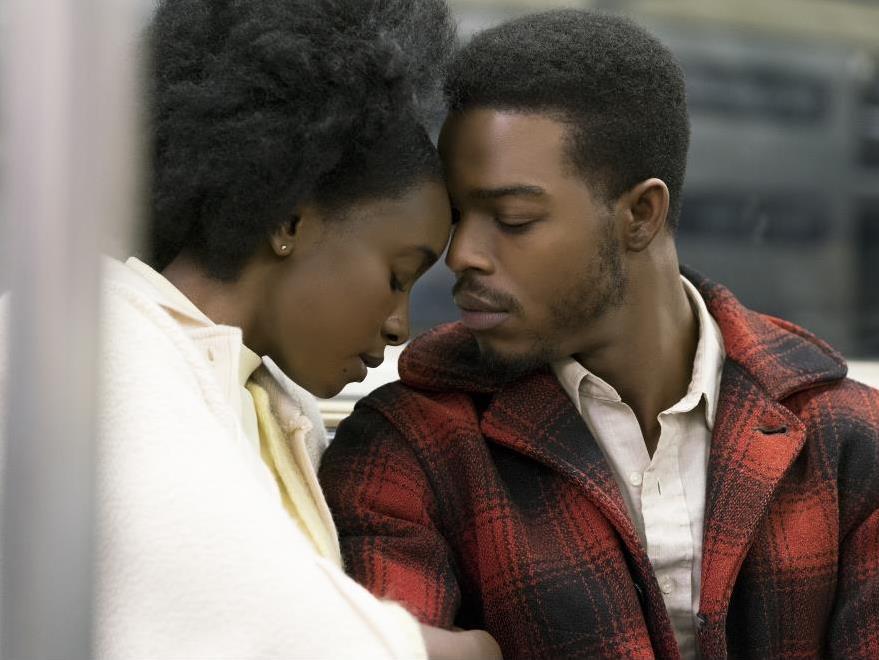Image: If Beale Street Could Talk. Source: eOne.
How does love survive in the world? If Beale Street Could Talk is filled with love in all it’s many forms: scene after scene shows the way people care for each other no matter what their connection or how their paths cross. But this is no fairy tale, and all the ways love can wither and die or be torn apart are right there too. Time and time again we’re shown that love isn’t something that just happens. We should enjoy it while it lasts, but making it last is hard work and this world will crush it every chance it gets.
Writer-director Barry Jenkins (Moonlight) adapts James Baldwin’s 1974 novel with a sure hand, taking the lyricism that shone through in the strongest moments of his previous film and marrying it to the gritty realism of early 70s Harlem. Tish Rivers (KiKi Layne, in her first film) and “Fonny” Hunt (Stephan James) grew up together on the same block, and now they’re deep in the throes of young love. But Fonny is about to go to jail for a crime he didn’t commit, and Tish just found out she’s going to have his baby.
The film’s structure is circular, constantly looping back to scenes showing the two in love even as the story – there are efforts to find a witness to prove Fonny’s innocence; Tish makes her way through a solo pregnancy – creeps forward. Other characters appear only for a scene or two but leave an indelible mark. The sequence where Tish tells her (largely understanding family) about her pregnancy, then they invite over Fonny’s (much more judgemental) family to share the news is a show-stopper; a later one where Fonny spends time with a friend (Atlanta’s Brian Tyree Henry) left shattered by a recent stint in jail is just as moving but in a lower, more desperate way.
It’s Jenkins’ firm insistence that everything about these people’s lives is valuable that energises this film. In other hands this might have been a slice-of-life look at black culture in the 70s, or a powerful tale about the way racism shatters lives (Fonny’s accuser was pointed his way by a white cop who took a random dislike to him). Those things are present here: Fonny and Tish’s love is constantly framed as a threat to the society bearing down around them, and it’s clear from the start that whatever happy ending they can grab in a white world will be provisional at best.
But this film refuses to reduce its leads or its focus. These are people living in hard times in a world that hates them, but they deserve love. Jenkins lets them luxuriate in it with a string of scenes that are often swooningly romantic in a way few recent films dare. James is always compelling, but it’s Layne as the quiet but steely Tish that lingers. Life is tougher than it should be, but she’ll fight for her family and for love. If Beale Street Could Talk is a film that soars high and dives deep; it earns the love it contains.
4.5 starsIf Beale Street Could Talk
Director: Barry Jenkins
USA, 2018, 119 mins
Release date: February 14th 2019
Distributor: eOne
Rated: MA 15+
Actors:
Director:
Format:
Country:
Release:





